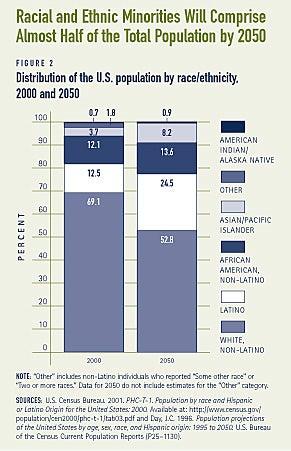To become a health inspector, you do not need to fulfill any specific academic requirements, but those who have an associate or bachelor's degree in occupational health, biology, chemistry, or a related field might have a better chance of protecting work. Likewise, there are no certifications needed for this job, but acquiring qualifications from The Council on Certification of Health, Environmental, and Security Technologists (CCHEST) or The Occupational Security and Health Administration (OSHA) is a fantastic way to boost your qualifications. From these organizations, you discover the basics of public health, food safety, public safety policies, examination practices, and health codes.
Show Me Schools Learn how to become a health inspector. Research study a health inspector income, education, and profession requirements, as well as training information and the experience needed for beginning a profession in health inspecting.
Program Me Schools Learn how to become a public health inspector. Research the education and profession requirements, training info and experience required for beginning a career in health inspection.
By Chron Contributor Updated January 15, 2021 The job of a health inspector is to secure the health and wellness of the public. Although the licensing requirements for health inspectors differ depending upon the state and local jurisdiction, all individuals working in the field needs to satisfy certain basic requirements. Many states and county health departments mandate that you pass a registration test prior to you can work as a health inspector. Educational requirements vary amongst employers and the level of position you hold. Standard course work for health inspectors consists of biology, chemistry, mathematics and physics at the high school level. Individuals who go on to pursue a postsecondary education in the field of occupational security and health normally make degrees in a science or technical field.
Other courses that may meet eligibility requirements Mental Health Facility consist of anatomy, industrial health and public health (How does health insurance deductible work). Degree programs offer courses in management concepts and service innovation together with basic education electives. Trainees enroll that cover OSHA guidelines, commercial health, mishap examination and avoidance, and hazardous products management. The U.S. Department of Labor offers a summary of relevant curricula varying from certificates to doctorates. People who wish to work as health inspectors have the alternative of completing a certificate program, earning an associate degree or completing a bachelor's or master's degree program. Health inspectors usually earn a bachelor's degree in occupational health, a natural science or ecological sciences.
The Greatest Guide To What Is Public Health

A bachelor's degree can be in any major, although the curriculum ought to focus on courses relevant to the field of occupational security and health. Those people who prepare to seek certification needs to make an associate degree in ecological security or health or a bachelor's degree to certify. All health inspectors, no matter their level of education, need to be experienced of the applicable federal and state laws, as well as ecological and health policies. In addition to their official education, health inspectors receive on-the-job training. The sort of hands-on training you receive depends upon the kind of work environment that you examine (Which of the following is least likely to be a health problem for someone with cystic fibrosis?).
Numerous employers prefer to work with job applicants who have actually had previous work experience, even if the useful experience comes from an internship or externship required to effectively complete an academic program. Experience working as a health inspector is a requirement for certification. While individuals operating in the field of occupational security and health are not required to get accreditation, numerous companies eventually encourage you to become certified. Health inspectors acquire accreditation through recognizing programs such as the National Environmental Health Science and Security Accreditation Council or the Council for Greater Education Accreditation. A number of other accreditations are offered to security workers.
: pursue a profession in the field of environmental and public health? secure the environment and susceptible populations? make a positive difference in your neighborhood? gain valuable job abilities, an important expert license, and hands-on field experience?, an 8-week course followed by a 200-hour unpaid field training internship, provides the know-how and hands-on experience you require, and qualifies you to sit for the Licensing Examination. For a fast photo of the EPH program, take a look at this brochure. For 2021, the "class" part of the Environment and Public Health http://kylerlmzr618.almoheet-travel.com/the-8-minute-rule-for-which-of-the-following-is-least-likely-to-be-a-health-problem-for-someone-with-cystic-fibrosis Program will run from May 24 to July 16. All trainees who successfully pass the EPH course will then be placed in a field-training internship with a community or county health department.
The "class" part of EPH 2021 will be held online. Students may attend class from the convenience and security of their own houses with the usage of high-speed web and a computer. In basic, live classes (held utilizing the "Zoom" web conferencing tool) will take location between 8:45 and 3:30 EDT, Monday through Thursday, with some exceptions to those starting and ending times. Presence is necessary. Self-paced, asynchronous (pre-recorded) classes will be provided on Fridays (and can be viewed that day or over the weekend), which will allow more versatility to students' schedules. Specific timing of when the internships start and end is subject to alter, due to the unpredictability caused by the coronavirus pandemic and the substantial work it has placed on the health departments.
Listen to trainees describe what they found out and see More help where they are now. Graduates of the EPH program and field training are eligible to take the New Jersey licensing test to become a. In New Jersey, an REHS functions as the front-line investigator for many of the state's public health and ecological policies. After the 8-week online session concludes, we'll position you in a 200-hour (5-week) unsettled internship with a health department. You will gain that matches the abilities that you've learned in the EPH classroom and prepares you for a.

Little Known Facts About What The Health Netflix.
Applications accepted from current State staff members, former long-term competitive class employees qualified for reinstatement and 55-b/c candidates. You need to satisfy the minimum qualification. Food Inspector 1 Category of, Information Posting Particular Details Control Number * Application Due By Title Food Inspector 1, Food Inspector Trainee 1, Food Inspector Student 2 Place: City DEC Region Division/Bureau Salary: Grade: $38,934 - $65,190 Effective 04/1018/13/ 14 Wage dependent upon qualifications of prospect Work Hours Days Work Days Mon. - Fri. Work Type Permanent Budgeted Item Visit Type Jurisdictional Class Competitive Haggling Unit/MC PS&T 05 (PEF) Duties/Responsibilities To be discussed at interview Minimum Credentials, Strictly stuck to based upon, Civil Service requirements - Presently in the title and a staff member of Design - Previously held the title on a permanent competitive basis or held a title as shown under the transfer qualified area on an irreversible competitive basis.
4: Should meet the open competitive minimum qualifications below; or, Eligible for transfer under Section 70. 1: Permanent competitive service as a Food Inspector 1 - What the health facts. 55-b/55-c Prospects should meet the open competitive minimum qualifications listed below and include with their resume or application, a copy of the letter from Civil Service which suggests approval for the 55-b/55-c program. Open competitive minimum credentials (offered 55b/c candidates and 70. 4 transfer eligibles): 120 college term credit hours which need to include 18 credit hours in specialized courses related to: chemistry, microbiology, food quality assurance, public health, entomology, food technology, food science, food processing innovation, food sanitation, dairy science, biology, environmental sanitation, or environmental health.